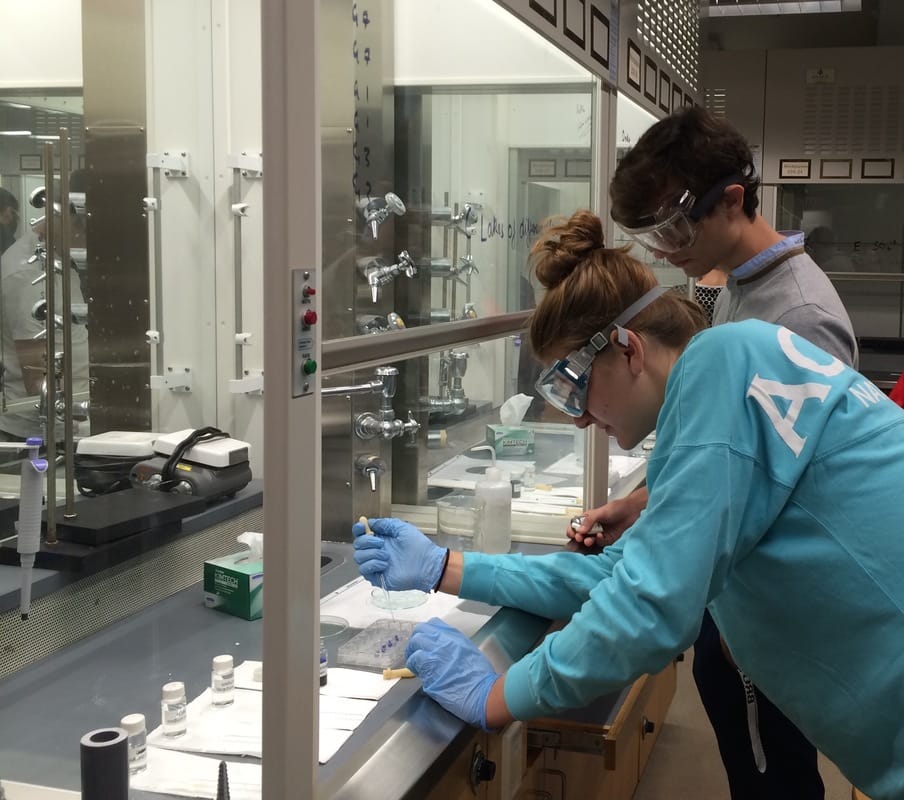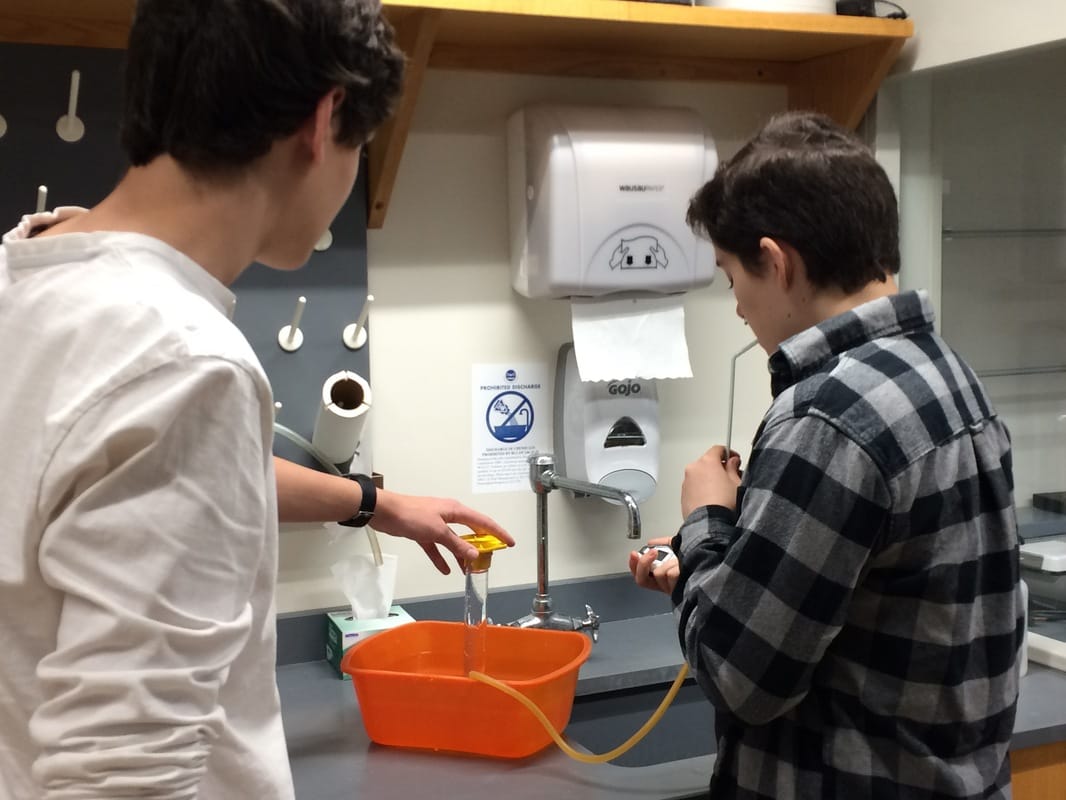|
Dr. Bathsheba Demuth, Brown University Most students at Brown University know Professor Kathleen Hess from the two-semester challenge of organic chemistry. But in a class that debuted this fall, “Exploration of the Chemistry of Renewable Energy,” Dr. Hess blended the tools of her discipline with questions of human impacts on the climate, renewable energy technologies, and the social impact of how energy is generated and used. The result is a socially-engaged course blending social science and bench science. “I thought this would be a perfect way to teach students who were not science majors,” Hess explains. “That was my goal.” Courses on climate or energy history, renewable energy, and the relationship between climate and society are now taught at universities and colleges across the country. Most are designed by faculty in humanities, earth science, or engineering departments. Hess’s class offers a new model. Inspired by the Chemistry Collaborations, Workshops, and Communities of Scholars (cCWCS) pedagogy seminars, Hess's syllabus combines interdisciplinary readings, guest lectures, writing assignments - and laboratory experiments. “I wanted to give students both background on the topic,” she says, “and then give them the hands-on experiment so they would have practical experience.” The course began by examining why renewable energy sources are increasingly important. Students read about fossil fuel pollution, climate change, and energy politics. They also did lab experiments to calculate how much energy is required to light a classroom. Then the syllabus moved on to examine batteries, fuel cells and solar panels. Hess framed each topic around a question. “Scientists should always be enquiring rather than saying we’re just going to the lab to make such and such,” Hess says. In one case, the class spent several weeks researching sources and uses of biofuel energy. Then students went to the lab to make fuel out of food waste from the Brown dining halls. “The students were really excited about this,” Hess notes. But when the class compared the energy yield to other fuels, “there was a lot of ‘oh, this is why we don’t do this,’” Hess says. “It was more of an illustration than just looking at another graph, because they saw and understood the processes involved.” In another case, students produced acid rain in a petri dish. Unlike history or policy classes, where acid rain is a topic – or most chemistry classes, where experiments are done in solution - Hess’s students saw “how concrete and bridges erode, and saw how materials travel through the air.” Students designed experiments to measure individual carbon emissions. In another experiment the class made their own hydrogen fuel cells. It required working with hydrochloric acid. Hess says hands-on exercises like this generated a great deal of student enthusiasm – not just energy between fuel cells – but were also complex and delicate. This was sometimes a challenge for students not used to the lab sciences. “Sometimes just getting ready to do the labs,” Hess says, “took some time and explaining. Sometimes they didn’t know how to start. So there could be a bit of inertia there.” Overall, however, Hess found “the level of student interest was really high. At the end of the course of the students told me that none of the lab assignments felt like homework, because they were so enjoyable.”
Across case studies, Hess linked the experiments back to social, political, and economic questions. Hess says her class arrived with “quite a few preconceived notions about why people believe in global warming or not, why they’re interested in renewable energy or not.” Through readings and lectures that covered climate change, the development of the current energy grid, the history of the electric car, the use of solar panel systems, and how humans have used different energy sources in the past, students started thinking about “how none of them have ever lived without power – without a light switch to turn on.” Student read about everything from global energy transitions to oil company correspondence about fossil fuel development. “I wanted them to see that we can always judge why people use the resources they do,” Hess explains, “but there are multiple sides to the story.” Seeing these multiple sides helped students understand how the physical principles and technologies they were learning about in the lab “was one thing, but how to incorporate it into society is another,” Hess says. She had each student choose a renewable technology – from algal biofuels to concentrated solar – and design a brochure to convince consumers to use a new source of energy. Students also presented the results of their alternative energy research to the class. For Hess, this was the most inspiring part of the course. As each student learned to combine their technical knowledge from labs with their research on specific fuels, she says “they felt that was encouraging because they had to come up with an alternative energy to talk about, and knew collectively about all these different options.” While thinking about climate change and the future is often discouraging and leaves individuals unsure how to respond, Hess found this course affirmed her sense that “education is the first step away from not knowing what to do. Especially mindful education where we don’t just judge things, but examine the combination of physical processes and assumptions that make them happen.” The best approaches to teaching climate change often combine perspectives from many disciplines, from the sciences to the humanities. |
Archives
March 2022
Categories
All
|



 RSS Feed
RSS Feed